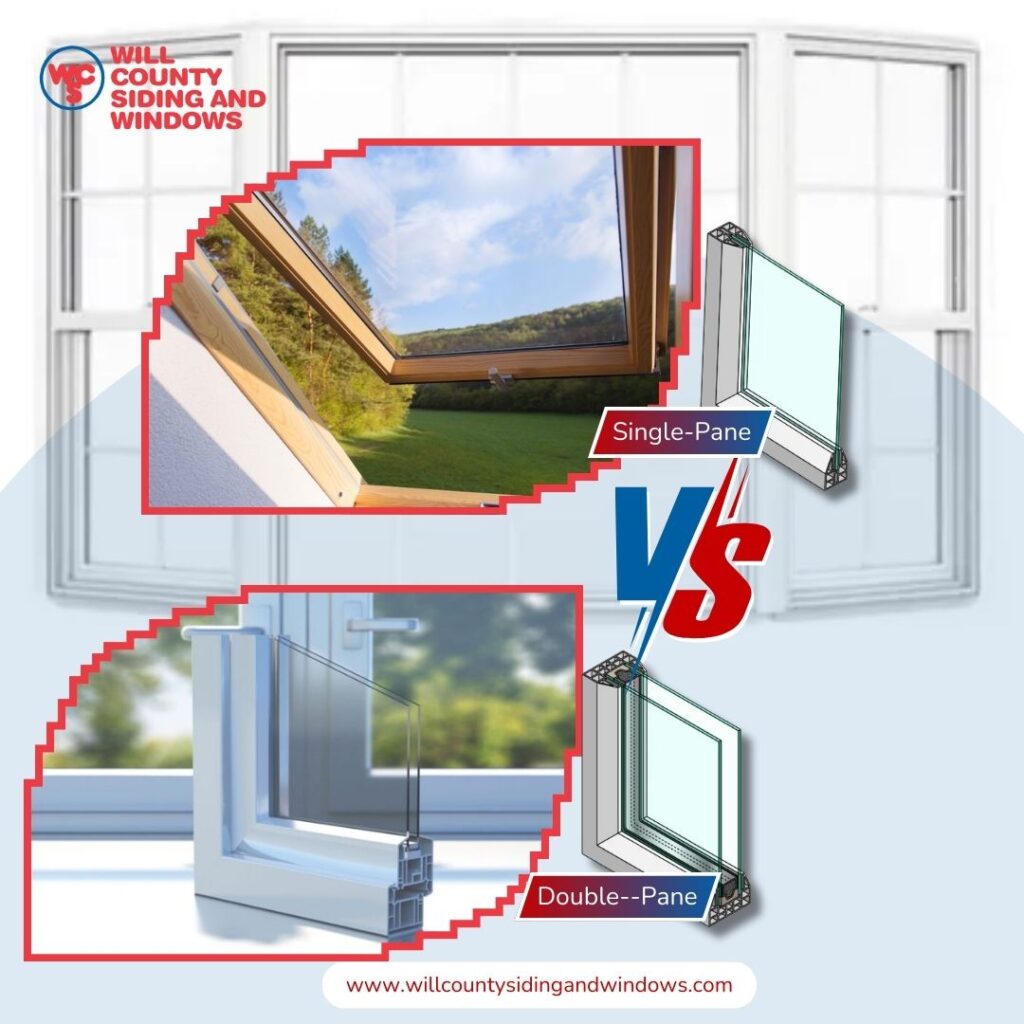When it comes to selecting windows for your home, one of the most important decisions you’ll face is choosing between single-pane and double-pane windows. Both options have their pros and cons, and the right choice depends on your specific needs, budget, and priorities. In this blog post, we’ll break down the differences between single-pane and double-pane windows, their benefits and drawbacks, and how to decide which is best for your home.
What Are Single-Pane and Double-Pane Windows?
Before diving into the comparison, let’s clarify what these terms mean:
- Single-Pane Windows: These windows consist of a single layer of glass. They are the most basic type of window and have been used in homes for decades.
- Double-Pane Windows: These windows feature two layers of glass with a sealed space (often filled with gas like argon or krypton) between them. This design improves insulation and energy efficiency.
Key Differences Between Single-Pane and Double-Pane Windows
Here’s a side-by-side comparison of the two types of windows:
| Feature | Single-Pane Windows | Double-Pane Windows |
| Glass Layers | 1 layer of glass | 2 layers of glass with a gap in between |
| Energy Efficiency | Less efficient; more prone to heat loss | Highly efficient; better insulation |
| Noise Reduction | Minimal noise reduction | Excellent noise reduction |
| Durability | Less durable; more prone to breakage | More durable and resistant to damage |
| Cost | Lower upfront cost | Higher upfront cost |
| Maintenance | Easier to repair | More complex to repair |
| Condensation | More prone to condensation | Less prone to condensation |
Advantages of Single-Pane Windows
While single-pane windows are less common in modern homes, they still have some advantages:
- Lower Cost: Single-pane windows are more affordable to purchase and install, making them a budget-friendly option.
- Simple Design: Their straightforward design makes them easier to repair or replace.
- Lightweight: Single-pane windows are lighter, which can be beneficial for certain architectural styles or older homes.
However, single-pane windows are generally less energy-efficient and offer minimal insulation, which can lead to higher energy bills over time.
Advantages of Double-Pane Windows
Double-pane windows are the preferred choice for most homeowners today, and for good reason:
- Energy Efficiency: The insulating gap between the two panes of glass reduces heat transfer, keeping your home warmer in winter and cooler in summer. This can significantly lower your energy bills.
- Noise Reduction: The dual layers of glass and the gas-filled gap help block outside noise, creating a quieter indoor environment.
- Durability: Double-pane windows are more resistant to damage and can withstand harsh weather conditions better than single-pane windows.
- Reduced Condensation: The insulating properties of double-pane windows reduce the likelihood of condensation forming on the glass.
- Increased Home Value: Installing double-pane windows can boost your home’s resale value, as they are seen as a modern and energy-efficient upgrade.
The main drawback of double-pane windows is their higher upfront cost, but the long-term savings on energy bills often outweigh this initial investment.
Factors to Consider When Choosing Between Single-Pane and Double-Pane Windows
To determine which type of window is right for your home, consider the following factors:
- Climate: If you live in an area with extreme temperatures, double-pane windows are a better choice for their superior insulation.
- Budget: If you’re on a tight budget, single-pane windows may be more affordable upfront, but keep in mind the potential long-term energy savings of double-pane windows.
- Noise Levels: If your home is in a noisy area, double-pane windows can provide much-needed soundproofing.
- Home Age and Style: Older homes may have single-pane windows that match their historical character. However, upgrading to double-pane windows can improve comfort and efficiency without sacrificing aesthetics.
- Energy Efficiency Goals: If reducing your carbon footprint and lowering energy bills are priorities, double-pane windows are the clear winner.
Maintenance and Longevity
- Single-Pane Windows: These windows are easier to repair but may require more frequent maintenance due to their susceptibility to drafts, condensation, and breakage.
- Double-Pane Windows: While they are more durable, double-pane windows can be more challenging to repair if the seal between the panes breaks, leading to fogging or reduced efficiency.
When to Upgrade to Double-Pane Windows
If your home currently has single-pane windows, upgrading to double-pane windows can offer significant benefits, including:
- Lower energy bills
- Improved comfort
- Reduced noise pollution
- Increased home value
While the initial cost may be higher, the long-term savings and benefits often make the investment worthwhile.
Final Thoughts: Which Should You Choose?
Choosing between single-pane and double-pane windows ultimately depends on your specific needs and circumstances. If you’re looking for a cost-effective solution for a mild climate or a historic home, single-pane windows may suffice. However, for most homeowners, double-pane windows are the better choice due to their energy efficiency, noise reduction, and durability.
Before making a decision, consult with a window professional to assess your home’s needs and explore your options. Investing in the right windows can enhance your home’s comfort, efficiency, and value for years to come.

